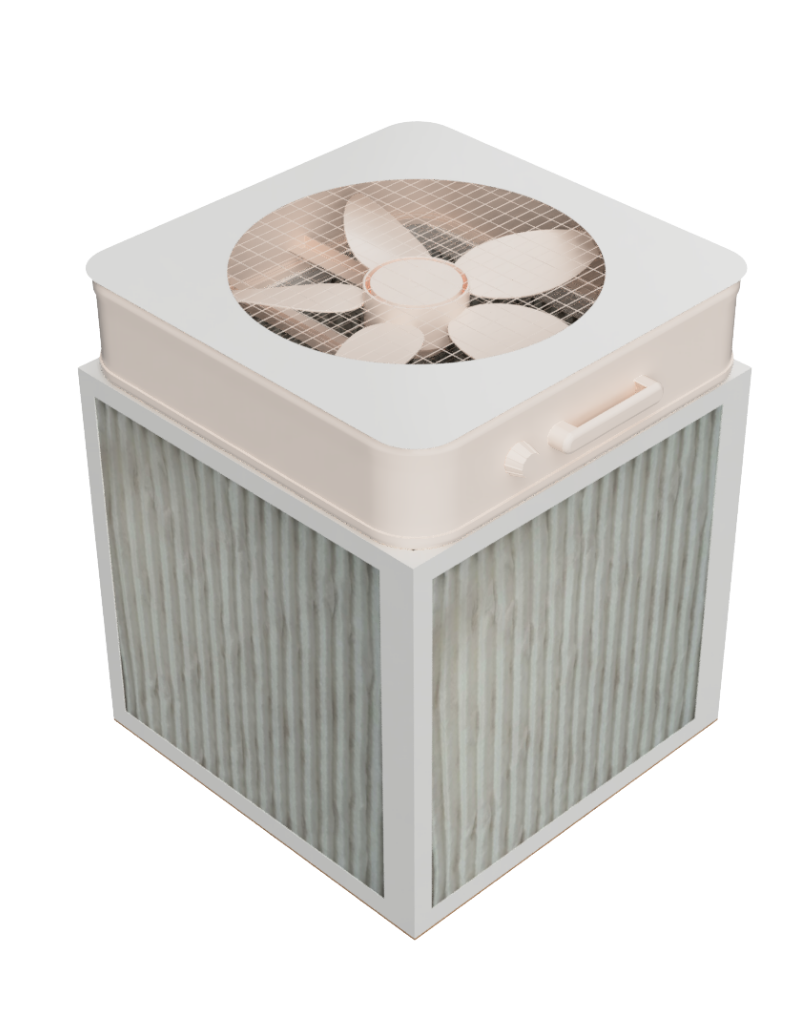
Better Air Quality Through Ventilation and Filtration
This week on our nationally syndicated radio show, we talk with one of the world’s leading experts on indoor air quality. If we had been paying more attention to air when the COVID-19 pandemic began, we might have saved millions of lives. Improving air quality is still critical to our health. Not only is SARS-CoV-2, the virus that causes COVID-19, still an airborne disease, but so are influenza and numerous other viruses.
Better Air Quality Through Ventilation and Filtration:
Dr. Richard Corsi has spent much of his illustrious career studying ways to improve indoor air quality. Two of the most important factors are ventilation and filtration. (Removing the source of the problem is also key. He reminded us that reducing COVID-19 transmission in public indoor spaces starts with people staying home when they are sick.)
How many homes, schools and offices have upgraded their air handling systems during the pandemic? Some have, but for many the logistics or the expense proved daunting. HEPA (high-efficiency particulate arresting) filters can make a difference, but the cost of $300 to $500 for one that can clean a room’s air might be an obstacle.
The Corsi-Rosenthal Box:
As Dr. Corsi considered ways to provide an affordable approach to better indoor air, he envisioned a way of moving a lot of air through inexpensive filters. When he described his concept of a box fan pulling air through a cube with filters on four sides, Jim Rosenthal (CEO of Tex-Air Filters) assembled one to do some tests. The resulting Corsi-Rosenthal box is effective and affordable, running between $60 and $150, depending upon the price of the materials.
Here is a picture of the Corsi-Rosenthal box:
Here is a link to a YouTube video with Dr. Corsi demonstrating how to make one.
In addition to removing dust and virus particles from the air, a Corsi-Rosenthal box made, as recommended, with MERV 13 filters can also help remove particles of smoke from wildfires. One box can help to improve the air quality in an average size classroom, offering the equivalent of 7 to 8 air changes an hour.
Other Approaches to Better Air Quality:
You might not need a Corsi-Rosenthal box at home if you are already using high-MERV filters (11 or 13) in your HVAC system. Some systems have HEPA filters built into them. As long as the filters are changed regularly and the fan is running to circulate the air, your system might be good enough, at least most of the time. If you have company, you might want to set up a C-R box shortly before they arrive and run it throughout the visit.
Ultraviolet light can kill viruses. If an ultraviolet light system is set up thoughtfully, in the upper part of a well-ventilated room, possibly above a dropped ceiling, it can help reduce the potential for disease transmission. However, the ultraviolet source must be shielded so that it does not damage people’s skin or eyes. This solution is more likely to be practical in public spaces such as restaurants.
Other concerns for indoor air include gas stoves. These can generate lots of very small particles as well as carbon monoxide. Luckily, most homes have an exhaust fan. Use it every time you turn your stove on to reduce the indoor air pollution it may cause.
Latex paint, carpet fibers, cleaning chemicals and air fresheners can all release volatile organic compounds (VOCs) that can damage the lungs over time. Good ventilation and filtration is essential to avoid these.
Avoiding COVID-19:
Dr. Corsi reminded us that we have the tools available to drastically reduce transmission of COVID-19. First, of course, is vaccination. In addition, we should use tests to determine if we have COVID and isolate ourselves if we are ill. Wearing a good-fitting N95 mask whenever we are with people outside our household can make a big difference. So can being smart about how we use public spaces.
This Week’s Guest:
Richard Corsi, PhD, is Dean of the College of Engineering of the University of California, Davis. Prior to his current position, Dr. Corsi spent most of his career as a faculty member, department chair, and endowed research chair at the University of Texas at Austin in the Department of Civil, Architectural and Environmental Engineering.
Dr. Corsi is an internationally recognized expert in the field of indoor air quality, with a specific interest in physical and chemical interactions between pollutants and indoor materials. His concept for a low-cost, accessible, and effective air cleaner, the Corsi-Rosenthal box, is now being used as an open-source do-it-yourself approach world-wide for reducing exposure to the SARS-CoV-2 virus, wildfire smoke, and more. Dr. Corsi was inducted into the International Society of Indoor Air Quality and Climate’s Academy of Fellows in 2008 and is immediate past president of the Academy. This website has more information:
https://engineering.ucdavis.edu/directory/richard-corsi
Listen to the Podcast:
The podcast of this program will be available Monday, Sept. 12, 2022, after broadcast on September 10. You can stream the show from this site and download the podcast for free.


